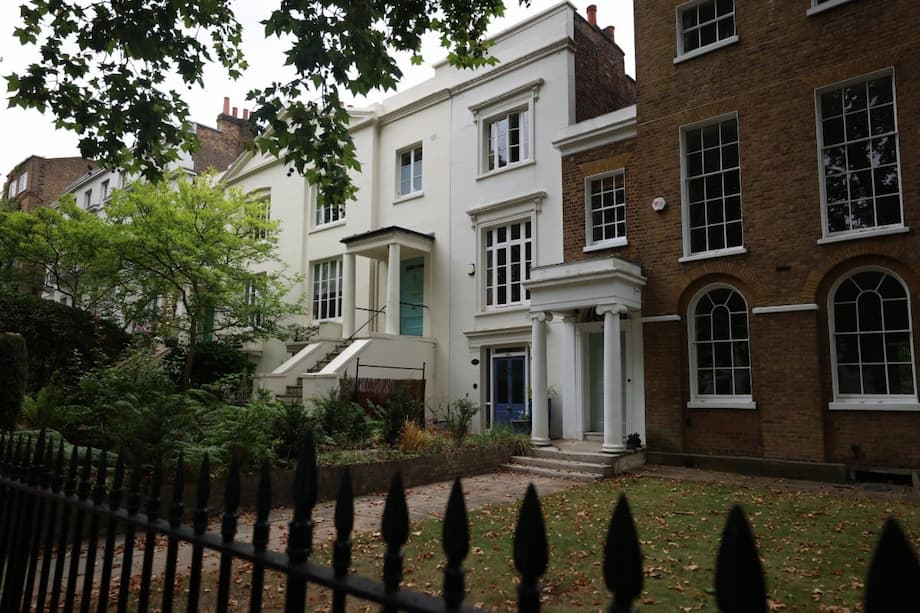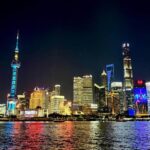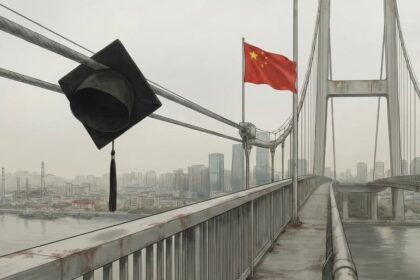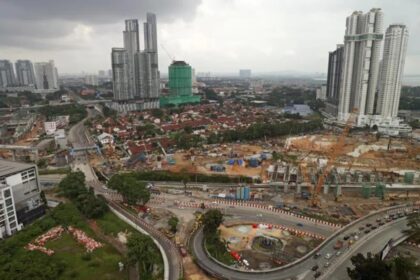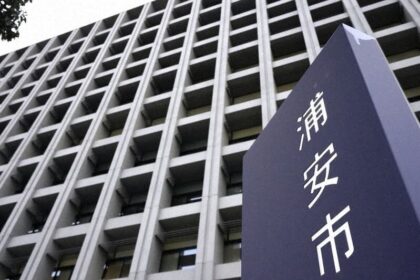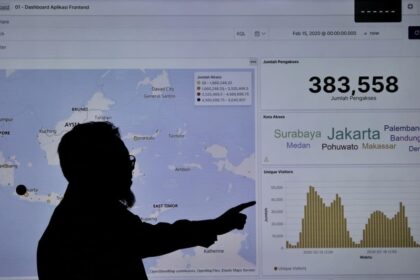London under renewed scrutiny as Asian probes trace funds to prime addresses
For years, property in London has attracted fortunes from around the world, with elegant terraces and glass towers doubling as storehouses of wealth. That allure is now colliding with a sharper push from Asian investigators and British authorities to track suspect money and freeze assets. In Malaysia, anticorruption officials have set their sights on wealth linked to power brokers, with inquiries touching alleged London holdings associated with former prime minister Mahathir Mohamad, which he denies. British authorities in June froze property worth about 180 million dollars at the request of the Malaysian Anti-Corruption Commission as part of a probe into the late tycoon Daim Zainuddin. The portfolio spans commercial buildings in the City and luxury homes in Marylebone and Bayswater.
- London under renewed scrutiny as Asian probes trace funds to prime addresses
- Why UK bricks and mortar attract hidden wealth
- Malaysia’s high stakes cases test London’s defenses
- Bangladesh seeks help to recover billions, and runs into hard realities
- Chinese capital controls and London holdings expose a trust loophole
- What the UK has changed, and where it still falls short
- How these flows shape London neighborhoods and markets
- The Bottom Line
Bangladesh has launched a sweeping effort to recover money it says was siphoned out during years of patronage and crony lending. Investigators are tracing billions in assets, including hundreds of properties in Britain linked to politically exposed figures and major business families. Across a different frontier, the fallout from a massive Singapore investigation into a suspected Chinese money laundering network revealed London ties worth tens of millions of dollars. Together these developments show why the United Kingdom, and London in particular, faces sustained pressure to clean up the real estate market and close gaps that permit hidden owners to move money into bricks and mortar.
Why UK bricks and mortar attract hidden wealth
Real estate is a classic way to turn suspect wealth into something that looks clean. The process follows three familiar stages. First, money enters the system through a property purchase. Second, layers are added through transfers and complex ownership structures that obscure who is in control. Third, funds re-enter the legitimate economy when the property is refinanced or sold. British property offers stability, prestige, and historically strong demand. That combination makes it attractive to legitimate buyers and to those looking to hide illicit gains.
Layering through offshore companies and trusts
Anonymous companies, trusts, and nominees can make it hard to know who actually owns a building or apartment. Shell firms registered in secrecy jurisdictions have long held titles to homes in London’s most sought after postcodes. Trusts add another layer. Trustees can be disclosed, while the beneficiaries remain hidden. The United Kingdom created a register for the beneficial owners of overseas entities that hold land. This has increased transparency, yet gaps remain around trusts and verification. Reports from European and UK bodies have found that a large share of properties linked to suspected corruption use offshore structures to hide true owners. When titles move between related entities or through a chain of companies, it gets harder for investigators to unwind the trail.
The underground banking pipeline from Asia
Currency controls and capital restrictions in several Asian economies fuel an informal market for moving funds abroad. In China, individuals face an annual cap on foreign transfers and strict limits on buying overseas property for investment. To get around this, clients may split payments among relatives, use intermediaries, or rely on informal value transfer systems often described as underground banking. In these systems, value is balanced through counterparties in different countries rather than funds moving through a traceable bank wire. The UK’s National Crime Agency has documented how these networks, sometimes called fei qian or flying money, enable transfers tied to tax evasion, fraud, and criminal proceeds. Trade-based techniques, mirror transactions, and the use of legitimate front businesses can mask the origin of funds. The same networks also move licit money, which complicates enforcement because clean and dirty funds can mingle inside the same channels.
The UK legal sector has issued guidance that highlights red flags in transactions linked to such flows. Warning signs include multiple payments from unrelated third parties, transfers clustered just below reporting thresholds, and luxury purchases that do not match a client’s declared income. Estate agents, conveyancers, and solicitors are all on the front line. They must identify the source of funds, check relationships between buyers and third party payers, and halt deals when checks cannot be completed. These controls are only effective when applied rigorously and backed by enforcement that punishes failures.
Malaysia’s high stakes cases test London’s defenses
Malaysia’s anticorruption drive has spilled into the UK record books. British authorities froze assets worth about 180 million dollars linked to a probe into the fortune of the late Daim Zainuddin, a close confidant of former prime minister Mahathir Mohamad. The holdings include commercial towers in the financial district and upscale homes nearby. Malaysian investigators also announced inquiries into alleged London-based assets associated with Mahathir himself. He denies any wrongdoing. These moves show a degree of cooperation between Kuala Lumpur and London as well as the power of civil asset freezing tools to stop the disposal of suspect property while cases proceed.
Freezing a property is different from confiscating it. A freeze is designed to preserve assets during an investigation or legal action. Confiscation requires a higher legal threshold. In the UK, this can happen following a criminal conviction or through civil recovery under the Proceeds of Crime Act. There is also a tool called an Unexplained Wealth Order. A court can require a person to explain how they acquired a high-value asset. If the explanation is not convincing and there is a link to suspected criminality or political exposure, the property can be targeted in further proceedings. These tools have limits. They require substantial investigative work, careful cross-border evidence gathering, and the ability to rebut claims that funds came from a legitimate source.
Bangladesh seeks help to recover billions, and runs into hard realities
Bangladesh’s interim authorities say vast sums were moved out of the country through misused bank loans, inflated contracts, and informal money transfer systems known locally as hundi. Investigators are examining assets believed to be abroad, with the UK property market a major focus. Civil society groups and international partners have pointed to a property footprint in Britain worth hundreds of millions of pounds held through companies and nominees. The government has set a road map with a target to reclaim a share of stolen assets across a set of priority cases. Consultants have been hired to review bank portfolios and trace proceeds that moved through hubs such as Dubai and Singapore before landing in the UK.
Among the most high profile figures under scrutiny is former land minister Saifuzzaman Chowdhury. Media and investigators have linked him and his close family to extensive property holdings worldwide, including hundreds of homes and commercial units in Britain and the United Arab Emirates. Public declarations in Bangladesh showed far smaller wealth, which has raised questions the authorities say they will pursue. Chowdhury and other subjects of these probes deny wrongdoing and say the claims are politically motivated. The scale of the alleged transfers and the use of offshore structures illustrate why Bangladesh wants cooperation from the UK to freeze and, where possible, recover assets.
Can London help recover the money
There are established channels for cross-border recovery. Bangladesh participates in the Stolen Asset Recovery Initiative, a partnership with the World Bank and the UN Office on Drugs and Crime. Mutual legal assistance treaties allow prosecutors to request records, freeze property, and bring evidence to court. British tools such as Unexplained Wealth Orders and civil recovery can complement foreign investigations. Success depends on detailed financial intelligence, strong case files, and a readiness to meet the evidentiary standards in British courts. It also depends on discretion. Enforcement professionals warn that public statements can alert targets, prompt asset transfers or restructuring, and make recovery harder. Freezing orders issued without notice often have the best chance of protecting assets before they are moved again.
Asset recovery takes time. Years can pass between a first freezing action and a final confiscation order. During that period, foreign investigators must respond to disclosure requirements, handle challenges brought by politically exposed persons, and coordinate with private sector firms that hold records or played a role in past transactions. The UK can help by dedicating resources to these cases and by pressing professional intermediaries to improve compliance. Bangladesh can improve outcomes by prioritizing stronger case files, avoiding premature publicity, and using international partnerships to map the flow of funds through banks and shell companies.
Chinese capital controls and London holdings expose a trust loophole
A major case in Singapore has highlighted how Chinese networks parked wealth in British property. Police there arrested ten people with Chinese origins on suspicion of laundering proceeds from scams and illegal gambling. Authorities seized about 1.3 billion dollars in assets in the city state. Records reviewed by investigators show ties to more than 56 million dollars of London real estate, including two adjoining commercial properties near Oxford Circus and a high rise apartment in Canary Wharf. One of the London assets was acquired through a company registered in Jersey that disclosed a trustee but shielded the trust’s beneficiaries from public view. The structure complied with registration rules yet left vital information out of sight. If prosecutors can show a link to criminal proceeds, the UK can pursue investigations that include orders requiring the owners to account for the source of wealth.
Large amounts of Chinese money reach British property through a blend of legitimate savings and unregulated channels that bypass official capital controls. Underground banks and mirror trades match a client’s need to pay abroad with cash income in the UK from illicit activity such as fraud or narcotics. The client’s family might deposit renminbi in China with an informal banker. The UK counterpart supplies pounds in London that are then used for property deposits or purchases. No visible cross-border transfer occurs, which frustrates bank compliance checks. Law enforcement has recorded cases in which these networks handled luxury retail payments and student remittances alongside criminal proceeds, a mix that confuses the picture and blurs audit trails.
What the UK has changed, and where it still falls short
Britain has tightened its rulebook in recent years. The Economic Crime Transparency and Enforcement Act created a Register of Overseas Entities to identify who owns property through foreign companies. The later Economic Crime and Corporate Transparency Act granted Companies House stronger powers to verify identities and challenge suspicious filings. The government has also updated sanctions guidance, expanded information sharing, and protected enforcement agencies from large costs when they bring Unexplained Wealth Orders. The National Crime Agency has targeted underground banking networks and cash courier rings. In one major prosecution, a jewelry sector network was convicted after moving vast sums of unexplained cash through business accounts. In another case, a west London group was found to have smuggled tens of millions of pounds in cash to Dubai, money that investigators believed came from drugs and organized immigration crime.
Where the rulebook still falls short
Gaps persist. Trusts can still shield beneficiaries from public view, which undermines the intent of ownership transparency. Checks on beneficial owners are only as strong as the verification behind them. Records can be faked. Company formations can include straw directors and nominees who mask the real controllers. Reports by European researchers have found that a large share of properties tied to suspected corruption used offshore structures. That is a sign that opacity remains a core problem. Enforcement capacity is also a constraint. Agencies must untangle long chains of transactions across multiple countries. Lawyers and property professionals have varying levels of compliance. Supervisors can sanction firms that cut corners, but investigations take time and skilled staff. Meanwhile, fresh inflows arrive each day.
Professional enablers are part of the solution. Estate agents, lawyers, accountants, and company service providers have a duty to identify politically exposed clients and understand the source of funds. Guidance in the UK calls for enhanced due diligence in higher risk cases and for transactions to stop when checks fail. Red flags include multiple payments from unrelated parties, inconsistent explanations, and purchase patterns that do not match income. Better reporting by these gatekeepers helps enforcement focus on the most suspicious flows. It also protects honest firms from becoming conduits for crime.
How these flows shape London neighborhoods and markets
Illicit money seeks safety and permanence. Prime London real estate offers both. A wave of anonymous cash purchases over the past two decades contributed to rising prices at the top end of the market and, in some pockets, to homes sitting dark for much of the year. Buyers used offshore companies, concierge services, and private bankers to navigate purchases with minimal disclosure. As transparency rules tightened, some wealth moved into commercial titles, which involve different disclosure rules, or into areas beyond the familiar luxury districts. The effect is uneven. Foreign capital has funded new towers and renovated blocks, which bring jobs and taxes. Hidden money also skews competition, prices out local buyers, and undermines trust. The presence of corrupt wealth can stain entire neighborhoods by association.
It is important to keep perspective. The majority of foreign buyers are legitimate. Many Asian families move money into London homes for study, business, or relocation. London’s draw as a global city is real. That reality does not cancel the need for stronger checks. When anonymous structures are allowed, corrupt actors benefit alongside honest ones. The UK faces a practical task, making it easy for clean money to invest while making it difficult for criminals to hide. That balance depends on stronger verification, better data, faster cross-border cooperation, and routine enforcement that removes the profit from wrongdoing.
The Bottom Line
- UK authorities froze about 180 million dollars in British property at Malaysia’s request as part of a probe into the late Daim Zainuddin’s fortune.
- Malaysian investigators are also examining alleged London-linked assets associated with former prime minister Mahathir Mohamad, which he denies.
- Bangladesh’s interim government is pursuing a plan to recover billions believed to have been moved abroad, with a large British property footprint under review.
- A Singapore case tied to a suspected Chinese laundering network revealed London holdings exceeding 56 million dollars and exposed trust-related transparency gaps.
- Underground banking and shell company layering help move and hide funds from Asia into UK real estate while mingling licit and illicit money.
- Britain’s new corporate transparency laws, a register for overseas owners, and Unexplained Wealth Orders have improved tools for enforcement.
- Key weaknesses remain around trusts, beneficial owner verification, and enforcement resources, which allow hidden owners to persist.
- Effective asset recovery relies on strong case files, discretion to avoid tipping off targets, and sustained cooperation between UK agencies and Asian authorities.


